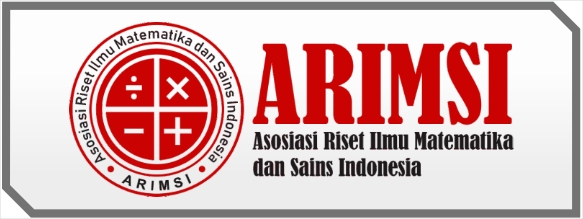Problem-Based Learning Model: An Effort To Improve Student Learning Outcomes In Class XI SMA Negeri 2 Tondano
DOI:
https://doi.org/10.59581/konstanta.v1i4.1387Keywords:
PBL, Learning Outcomes, Human Movement SystemsAbstract
The objective of this study is to assess the enhancement in student learning outcomes subsequent to the implementation of the Problem-Based Learning instructional approach in the eleventh grade of SMA Negeri 2 Tondano, located in the Sangihe Islands district, during the academic year 2022/2023. The present study is an instance of classroom action research (PTK) employing an action cycle that encompasses action preparation, implementation, observation, and reflection. The participants of this study consisted of 18 students from class XI MIPA3 at SMA N 2 Tondano. The data gathering methods encompass the assessment of student learning outcomes through the utilisation of test result data conducted at the conclusion of each instructional cycle. The data analysis was conducted using a quantitative descriptive approach. The findings of the study indicated that the implementation of questionnaires in cycle I resulted in a significant improvement in students' learning outcomes. The sample size for this phase of the research consisted of 18 participants. The completion rate of students' learning outcomes exhibited an upward trend, rising from 79.94% in cycle I to 86.27% in cycle II. The observed rise in student learning scores over each cycle suggests that the utilisation of the Problem-Based Learning model has the potential to enhance the learning outcomes of students in class XI MIPA3 SMA N 2 Tondano.
References
A’la, Miftahul, (2012). Quantum Teaching. Yogyakarta: DIVA Press.
Anderson & Krathwohl. (2001). A Taxonomy for Learning, Teaching, and Assessing. New York: Addison Wesley Longman Inc.
Agustiana, I Gusti Ayu Tri dan I Nyoman Tika. (2013). Konsep Dasar IPA: Aspek Fisika dan Kimia. Yogyakarta: Ombak.
Arends. (1997). Model-Model Pembelajaran Inovatif berorientasi Konstuktivitis, Jakarta:
Dick, W and Carrey, L. (1985). The Systematic Design Instruction Second edition. Glenview. Illinois: Scott., Foreman and Company
Dimyati & Mudjiono. (2013). Belajar Dan Pembelajaran. Jakarta: Rineka Cipta
Dahar, R. W. (1998). Teori-Teori Belajar. Jakarta: Erlangga
Febriani, Deni. (2017). Psikologi Pembelajaran, Yogyakarta : Pustaka Pelajar.
Gagne, R. M. and Briggs, L. J. (1979). Priciples of Instructional Design (2nd Ed.) New York: Holt, Rinehart and Wiston.
Gagne, Wager, Golas, Keller. (2005) Principles of Instructional Design. Thomson.
Huda, M. (2013). Model-model Pengajaran dan Pembelajaran. Malang: Pustaka Pelajar.
Joyce, Bruce, Marsha Weil dan Emily Calhoun. (2009) Models of Teaching (Model-model Pengajaran Edisi Kedelapan). Yogyakarta: Pustaka Belajar
Kemp, Jerold. E. (1995). The instructional design process. New York: harper & Row publisher
Magdalena, O, Mulyani, S, Susanti, E., (2014), Pengaruh Model Pembelajaran Problem Based Learning terhadap Hasil Belajar Siswa Ditinjau dari Kreativitas Siswa
Noviar. (2007). Agar Anak Suka Membaca. Yogyakarta: Media Insani.
Noviar, D, Hastuti, D.R., (2015), Pengaruh Model Problem Based Learning (PBL) Berbasis Scientific Approach terhadap Hasil Belajar Biologi
Purwanto. (2010). Evaluasi Hasil belajar. Yogyakarta: Pustaka Pelajar
Rusman. (2013). Metode-Metode Pembelajaran: Mengembangkan Profesionalisme Guru. Jakarta: PT RajaGrafindo Persada
Rusmono. (2012). Strategi Pembelajaran dengan Model Problem Based Learning itu Perlu. Bogor: Ghalia Indonesia
Slameto. (2003). Belajar dan Faktor-faktor yang mempengaruhinya. Jakarta: Rineka Cipta Sumadi Suryabrat 2002. Psikologi pendidikan. Jakarta; PT Raja, Grafindo Persada
Sanjaya, Wina. 2010. Strategi Pembelajaran Berorientasi Standar Proses Pendidikan. Jakarta: Kencana Prenada Media Group
Winkel, W.S. 1996. Psikologi Pengajaran. Jakarta: PT Gramedia Widiasarana Indonesia.













